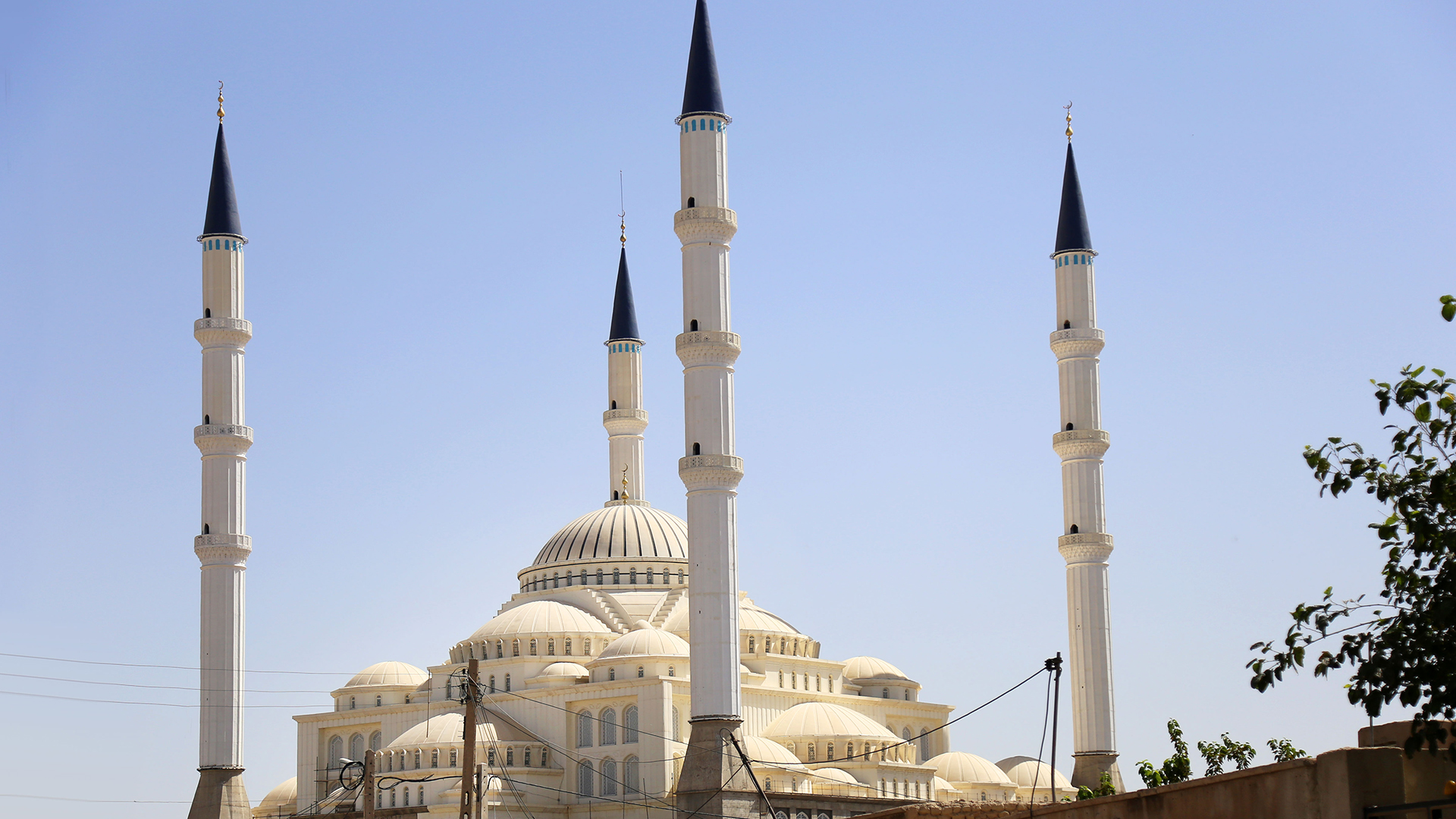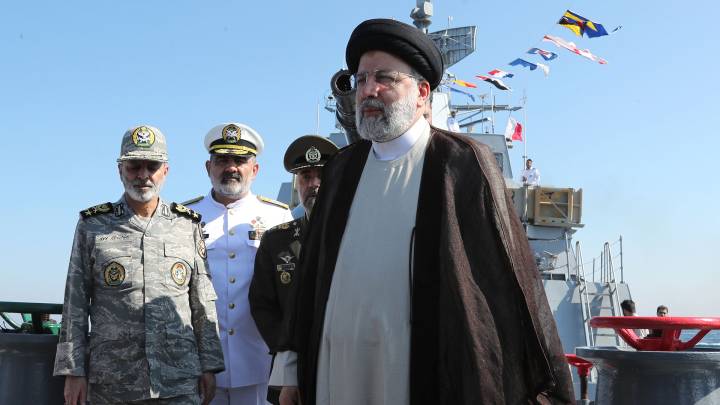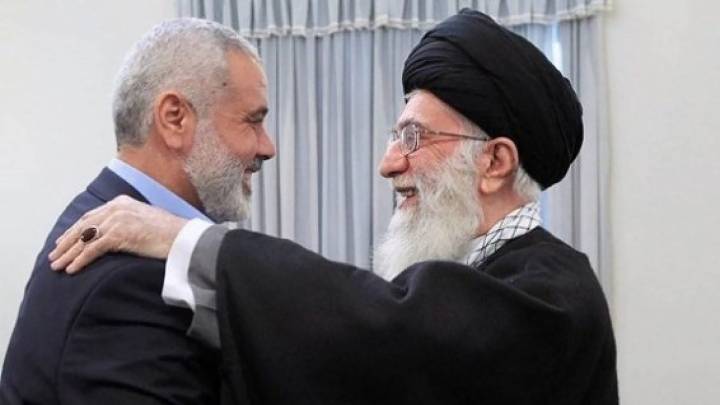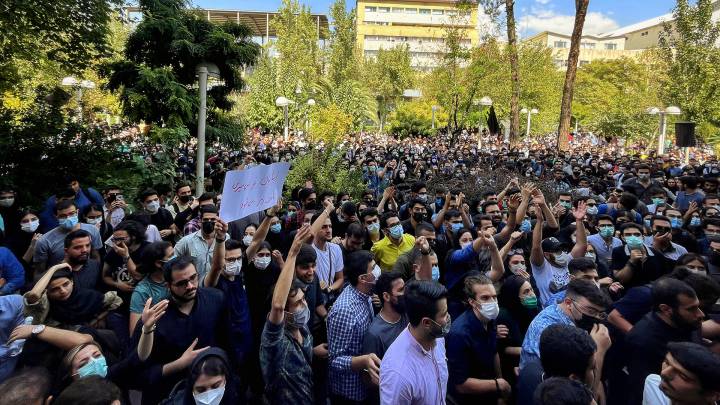Is the Sunni community the Achilles' heel of the Islamic Republic? In the course of the protests, a religious leader from Baluchistan has a decisive role to play.
Following the tragic death of Mahsa (Jina) Amini, a 22-year-old Sunni Kurd who was arrested on 13 September by the Iranian ‘morality police’ and died two days later, new waves of protest started all across Iran. Around the same time, the news of a Baluch girl who was raped by a high-ranking police officer in the Chabahar port in the province Sistan-Baluchistan caused major concern among the Baluch communities in Iran, who demanded justice.
On the last day of September, shortly after the Friday prayer held by Molana Abdolhamid Esmailzayi, the Shaykh al-Islam of Zahedan, clashes erupted between local Baluchis and security forces and resulted in an unprecedented event in city of Zahedan. Reportedly, after the prayer, while everything was peaceful, a group of young people started to demonstrate, and, in response, the security forces started shooting both the demonstrators and bystanders, including those in the mosque (outside hall) who were still praying.
The clashes started around the Makki complex, which is the largest Sunni Mosque in Iran and a school (known as Dar al-Ulum ‘House of learning’). During the night, in a militarized environment, over 40 people were killed and 100 injured in the city of Zahedan. Further, two major police stations and other official buildings were set on fire by the people. Critically, it is also known that four people from the security apparatuses of the IRGC (Islamic Revolutionary Guards Corps) were killed, including the deputy of the IRGC intelligence department of Sistan and Baluchistan, Seyyed Hamidreza Hashemi (alias Seyyed Ali Musavi).
Many observers both in Iran and abroad do not have sufficient information on what is taking place on the ground; however, in this context it is important to consider Molana Abdolhamid, his network and as his well-stablished institutions, which will continue to play an import political role in Iran and abroad.
Historical context
The Iranian Baluch community witnessed a major societal shift during the reign of Reza Shah. Together with Islamisation of the community, the authority of local chief tribes (sardar) was replaced by the religious groups known as Molavi, or Molana, – i.e. Sunni Hanafi religious personnel with an educational background in Deobandi Schools in India or Pakistan. However, this transformation did not completely wash away the existing tribal hierarchy but permitted the religious authorities in Baluchistan to be involved in both social and political issues.
In fact, the instrumentalization of tribal-confessional affiliations helped the emergence of the Deoband School around the Sarbaz River valley in the Sistan-Baluchistan province at the end of 1920s. This socio-religious transformation was backed by one of the important tribes, the Esmailzayi, which was renamed Shahbakhsh (‘King Forgiven’) during the Pahlavi. Abdolhamid, who is from this tribe, exemplifies the socio-political role that these tribal-confessional figures play to this today.
Abdolhamid is the son-in-law and pupil of Molana Abdolaziz Mollazade, who played a crucial role in 1970s and 1980s by exerting his influence in the country and establishing a central position for the Iranian Sunnis in the province. He opened two new mosques, Madani (1978) and Makki (1979), as well as two Madrasas (higher religious schools) in Dipkur and Zahedan.
Abdolaziz’s influence was not limited to the Iranian Baluch community, as in becoming a political figure he also became the representative of the Iranian Sunni community as a whole. Abdolaziz met Khomeini in Najaf, representing the Sunni community’s interests as well as expressing their support for Khomeini. After the revolution, Abdolaziz, along with other influential Sunni clerics such as Mamusta ‘Izz al-Din Husayni and Kak Ahmad Moftizade, rejected Khomeini’s velayat-e faqih (Jurisconsult’s Government).
Following Abdolaziz’s death in August 1987, Molana Abdolhamid became his successor. In this regard, Abdolhamid achieved this position during very critical times internationally and domestically: the fall of the Berlin Wall; the end of the Soviet–Afghan war; the end of the first golf war; the death of Khomeini and the start of Khamenei’s leadership; and a new period of drought in Iranian Baluchistan which had devastating consequences for the local society. In this environment, Abdolhamid started to dramatically transform Zahedan, and established a centre similar to Qom.
Indeed, under Abdolhamid’s leadership, Dar al-Ulum became one of the main centres of Sunni higher education within the Persian-speaking Sunni community, attracting students from Afghanistan and Tajikistan. The institution expanded its programmes from as early as 1998, offering an Arabic teaching centre and a Shafei Jurisprudence specialization to attract Shafei Sunnis from Kurdistan and Hormozgan.
Further, while at the time of Molana Abdolaziz’s death there was only one madrasa for women, by the end of 2016 the number had increased to 12 in Zahedan alone. Women can mostly obtain their specialization in reading the Quran, Hadith and Islamic jurisprudence (Fiqh). To connect other Sunni scholars from all over the country, Abdolhamid has since 2007 organised the Council of Fiqh. Beside various publishing activities, there is a significant history of Iranian Sunni activities in cyberspace, so that now almost all madrasas have not just a headmaster but also a webmaster and a social media admin.
The official website of Dar al-Ulum (Sunnionline) was created to report on news related to the Iranian Sunni communities as well as Muslim minorities around the world. The website claims to be the “news agency of Iranian Sunnis,” and provides its content in five languages (Farsi, Arabic, Baluchi, Urdu and English). There are three financial institutions which are independent of the state under the umbrella of Makki: first, the office of Donor Relations, which is in charge of public donors; second, the Mohsenin Charity Institute, established in 2002, which provides support for poor families in the Sunni inhabited provinces; and third, the Aziziyye financial institution, opened in 2010, which gives financial loans o poor families in Sistan-Baluchistan.
Abdolhamid and his agenda
Molana Abdolhamid was born in 1947, in the village of Galugah in the west of Zahedan. Due to the lack of religious institutions in his village, he could only study with the local Mullahs at the mosque. He later travelled to Pakistan to complete his religious education. After his return in 1971, he supported his father-in-law Molana Abdolaziz in opening the Makki Dar al-Ulum. Initially, Abdolhamid worked there as a teacher and was also in charge of the institute’s internal affairs, until he became the head of Dar al-Ulum and Shaykh al-Islam of Zahedan.
Continuing the path of his predecessor, which he described as “the path of reform and toleration”, he emphasizes the creation of a peaceful society in which differences do not destroy security. He also plays a mediatory role within his community in solving social and inter-tribal issues in Sistan-Baluchistan. This is a role which he is interested in expanding and bringing to a wider context by actively expressing his view about socio-political issues in Iran.
By doing so, he predominantly represents himself as the speaker of all Iranian Sunnis, if not all Iranian minorities. In this position, he has explicitly showed his support for the opposition during any demonstration while following the establishment’s general red lines and orders by encouraging demonstrators to avoid violence, as was the case during the Green Movement in 2008 and the public uprisings in 2019-2020.
Abdolhamid also played a significant role in Iran’s internal political games, especially in the elections. Since the 1993 presidential election, Iranian Sunnis, particularly in Sistan-Baluchistan, have voted for the Reformist party, thanks to the mobilization of Abdolhamid and his networks among Iranian Sunnis. After a period of insurgencies and conflicts during 2005-2007 and the subsequent increase of securitization in Sunni societies, Abdolhamid supported Musavi in the 2009 election.
However, Abdolhamid recognized Ahmadinejad’s re-election despite the issue of irregularities at the polls which caused mass demonstrations all over Iran. In 2013, Abdolhamid and other influential Sunni clerics, as well as other Sunni politicians from Iranian Kurdistan, mobilized the wider Sunni community in support of presidential candidate Hasan Rouhani, who then received the most votes (almost 100% of the ballots) in large parts of Sistan-Baluchistan and Kurdistan.
The Rouhani administration exhibited at least some limited symbolic gratitude toward the Iranian Sunnis. Soon after his election, the pressure exerted on the Sunni clerics was reduced. For instance, Molavi Mohammad-Esmail Mollazayi (Abdolhamid’s son-in-law), who had been condemned to ten years imprisonment, was released shortly after Rouhani’s election. Molavi Mohammad-Esmail is in charge of the administration and financial affairs of Makki institutions, and Abdolhamid’s probable successor.
Moreover, Abdolhamid, who had had difficulties in travelling to other cities during Ahmadinejad’s regime, both inside and outside of Iran, enjoyed a certain freedom of movement under Rouhani. He participated in various Islamic events and conferences, for example in Tajikistan and Tatarstan (Russian Federation) in September 2019, where in the latter he met Persian-speaking students with various Tajik and Tatar backgrounds in the cities of Bolgar and Kazan. In fact, through these foreign travels and exchanges Abdolhamid and his institutions became part of Tehran’s political manoeuvring outside Iran.
Nevertheless, the failure of Reformists and Moderates to take note of the demands of Iranian Sunnis led to the Sunnis feeling betrayed. Since 2017, Abdolhamid and many Sunnis clerics close to him have harshly criticized the fact of their concerns and socio-political issues going unanswered. During Rouhani’s reign, a time of rising regional and geopolitical challenges and internal competition, Iranian Sunnis came under increased security pressure which peaked in 2018-2019 after the arrest of some of the Sunni clerics close to Abdolhamid.
Notable here is Molavi Kuhi, who was arrested in November 2019, shortly before the mass uprising in Iran following the increase in fuel prices. After many unsuccessful attempts to release Molavi Kuhi, Abdolhamid directly expressed in a 2020 letter to Supreme Leader Khamenei that the Iranian Sunnis were still suffering as “second-class citizens” after the Revolution.
A new era
In June 2021, during the presidential election, Abdolhamid and all the institutions identified Ebrahim Raisi as the only preferable candidate, and whose victory was widely predicted before the election. Thus, supporting Raisi was the only rational choice for Abdolhamid if he did not want to lose his very thin ties with the establishment.
In this process, Abdolhamid’s representative met with Sayyid Hamed Alamolhoda (director of Raisi’s Headquarters in the Affairs of Ethnicities, Confessions, and Religious Minorities), the elder son of Sayyid Ahmad Alamolhoda (Raisi’s father-in-law, Mashhad’s Imam Juma, and Khamenei’s representative in the province). The decision to support Raisi should not be understood as the overall support of all Iranian Sunnis. Many Iranian Sunnis, mainly among the Kurds, did not support Abdolhamid’s decision. Nonetheless, it showed the authority of Makki and the influence of Abdolhamid among certain groups of Sunni communities.
Not entirely surprisingly, the new president did not improve the life of Iranian Sunnis. The prominent Sunni scholar Molana Gurgij (b. 1942), a former schoolmate of Abdolhamid and the former Imam Juma of Azadshahr, was dismissed from his role as Imam Juma on 17 December 2021, which raised major concerns among the Sunnis.
This decision came from the office of Ali Khamenei’s representative in Golestan province and led to protests in the city of Azadshahr as well as a wide range of criticism from Iranian Sunni communities on social media. As he did in 2020, Abdolhamid sent a public letter to Ali Khamenei asking for “urgent measures to resolve the issue”. As a public response, Khamenei signalled his awareness of Sunni-Shia dissonance in Iran on 9 January 2022; however, he warned that people should not “prolong the issue”.
Most important to mention at this point is Abdolhamid’s position toward the Taliban, who share the same school of thought ideologically, namely the Hanafi school of Deoband. Shortly after the Taliban takeover on August 17, and as the first to react to the situation, Abdolhamid congratulated the Taliban on their victory and assured the world that “there are changes in Taliban’s views ... As we are neighbours, we know them better”.
He also clearly wrote a recommendation to the Taliban to include “all religious confessional and ethnic groups in the government” – a recommendation of which he reminds the Iranian authorities quite frequently. Abdolhamid also used the Islamic Republic’s narrative and blamed the United States and other foreign countries who had operated in Afghanistan in the past for the issues in Afghanistan.
This statement came as a surprise to many Iranians who had a different picture of Abdolhamid, namely as a defender of toleration and someone against religious extremism. For instance, the Defenders of Human Rights Center in Iran, which gave their annual human rights prize to Molavi Abdolhamid in 2013, expressed their criticism and urged him to reconsider his statement.
On August 23 the organisation then revoked their prize. Abdolhamid’s office further repeated its position and emphasized that having such a prize was not in Abdolhamid’s interest. Under these circumstances, to show solidarity with Abdolhamid, many Iranian Sunnis shared his picture on social media to express his spiritual and political authority once again.
Has the game changed?
In the last three years, the number of cases of discrimination against and oppression of Sunnis in Sistan-Baluchistan was not small. A major longstanding issue was the situation of sukhtbar (fuel carriers), who smuggled gallons of gasoline to Pakistan in their private cars or motorcycles and were killed either by security forces or in accidents.
This increased dramatically during the Rouhani regime due to economic hardship and the failure of the state to improve mass underdevelopment in this neglected province. The government’s suggestion of dividing the province into four smaller provinces to exert better control over the situation was received very sceptically by the Baluch peoples and was interpreted as a policy which aimed to erase the name of Baluchistan and divide Baluch communities. Abdolhamid and other Sunni clerics warned the authorities many times not to implement this policy.
The Baluch uprising of Friday September 30, 2022 led to oppression harsher than any of the other forms which Sunnis had experienced over the last decades. The state publicly announced that the brutal event on that black Friday was carried out by terrorist groups. The commander of IRGC Quds force in the province declared days after: “we will never let the imperialist trash, led by Israel and America, harm the people’s security and they will never destroy the unity of Shia and Sunni”.
On the same day, Abdolhamid published a video narrating other side of the story, accusing security forces of killing approximately 40 men and one woman by shooting directly at them: “the majority of people were returning from the mosque and the security forces shot them with battle rifle”. He called this disastrous event a major failure of the police and authorities. While he asked people to remain calm, he encouraged them not to forget to demand their rights, which “they have been asking for 43 years ... we want justice, and the authorities have to answer”.
The question of Iranian Sunnis and the role of their authorities and networks has always been seen through a security paradigm. Some people inside and outside Iran might see this question as a possible Achilles’s heel for the Islamic Republic. Taking into consideration the complexity of the socio-political aspects of the Iranian Sunnis domestically and internationally, the current situation confronts Abdolhamid and others in his network with a difficult position which they have not faced before.
The uncertainty around the current situation will surely bring unexpected events to Iran and the region. In this regard, Iranian Sunnis in general, and Abdolhamid and his institutions in particular, will remain pivotal.




